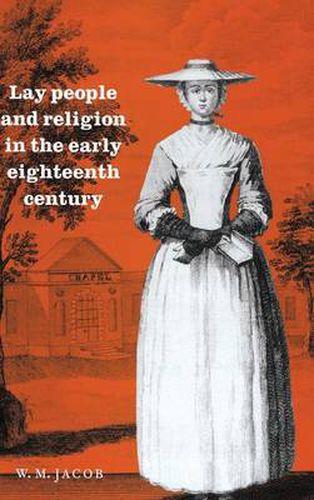Readings Newsletter
Become a Readings Member to make your shopping experience even easier.
Sign in or sign up for free!
You’re not far away from qualifying for FREE standard shipping within Australia
You’ve qualified for FREE standard shipping within Australia
The cart is loading…






This book investigates the part that Anglicanism played in the lives of lay people in England and Wales between 1689 and 1750. It is concerned with what they did rather than what they believed, and explores their attitudes to clergy, religious activities, personal morality and charitable giving. Using diaries, letters, account books, newspapers and popular publications and parish and diocesan records, Dr Jacob demonstrates that Anglicanism held the allegiance of a significant proportion of all people. They took the lead in managing the affairs of the parishes, which were the major focus of communal and social life, and supported the spiritual and moral discipline of the church courts. He shows that early eighteenth-century England and Wales remained a largely traditional society and that Methodism emerged from a strong church, which was central to the lives of most people.
$9.00 standard shipping within Australia
FREE standard shipping within Australia for orders over $100.00
Express & International shipping calculated at checkout
This book investigates the part that Anglicanism played in the lives of lay people in England and Wales between 1689 and 1750. It is concerned with what they did rather than what they believed, and explores their attitudes to clergy, religious activities, personal morality and charitable giving. Using diaries, letters, account books, newspapers and popular publications and parish and diocesan records, Dr Jacob demonstrates that Anglicanism held the allegiance of a significant proportion of all people. They took the lead in managing the affairs of the parishes, which were the major focus of communal and social life, and supported the spiritual and moral discipline of the church courts. He shows that early eighteenth-century England and Wales remained a largely traditional society and that Methodism emerged from a strong church, which was central to the lives of most people.